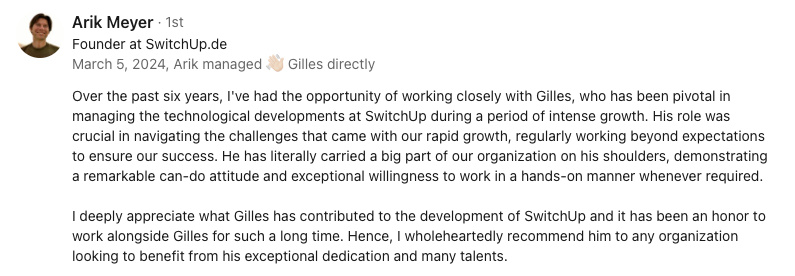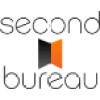Abstract:
The article discusses the growing importance of micro-credentials in European startups, especially in navigating complex EU regulations like GDPR and eIDAS, which focus on data protection and secure electronic transactions. By understanding and complying with these regulations, startups can transform potential obstacles into opportunities for growth and credibility. Micro-credentials not only ensure regulatory compliance but also align with the European Qualifications Framework (EQF), enhancing recognition and comparability across Europe. The article highlights how implementing robust data protection measures, leveraging qualified trust services, and forming strategic partnerships can simplify compliance and bolster trust. Moreover, micro-credentials can aid in talent retention by fostering a culture of continuous learning, aligning employees' personal growth with company objectives. Case studies, such as OpenClassrooms and EdApp, illustrate successful implementations and underscore the strategic advantages of micro-credentials in creating a skilled workforce, attracting investment, and enhancing market position. Ultimately, micro-credentials offer startups flexibility and scalability in skill development, providing a cost-effective alternative to traditional education that supports business agility and sustainable growth.
In the fast-paced world of startups, micro-credentials are gaining traction. As a startup founder in Europe, navigating EU regulations like GDPR and eIDAS can be daunting. These regulations are designed to protect data and secure electronic transactions, but they can appear as hurdles. However, a deep understanding of these rules can transform challenges into opportunities.
Micro-credentials are not just about compliance—they are tools to enhance your startup's credibility and growth. By aligning with the European Qualifications Framework and ensuring robust data protection, startups can leverage these challenges to innovate and thrive. This approach not only secures digital processes but also positions your startup as a market leader.
Navigating EU Compliance Through Micro-Credentials
Startups thrive on innovation, and micro-credentials are becoming increasingly important. In Europe, startups must adhere to regulations like GDPR and eIDAS, which emphasize data protection and secure transactions. Here's how these rules impact micro-credentialing and how startups can manage them effectively.
Understanding GDPR and eIDAS for Micro-Credentials
For startups venturing into micro-credentials, understanding GDPR and eIDAS is crucial. These regulations aim to protect personal data and ensure security in electronic transactions.
-
GDPR: This involves protecting personal data, requiring businesses to:
- Conduct Data Protection Impact Assessments (DPIAs).
- Minimize and encrypt data.
- Be transparent in data processing and obtain user consent.
-
eIDAS: Provides a framework for secure electronic identification, crucial for:
- Implementing electronic signatures and seals.
- Ensuring compatibility with other EU identification systems.
With these regulations, startups can devise compliance strategies, ensuring their systems are legally sound.
Implementing Robust Data Protection Measures
Data protection is essential. Startups should adopt strong data protection measures to comply with GDPR, such as:
- Conducting DPIAs: Identify and address risks.
- Collecting Necessary Information Only: Avoid excess data collection.
- Encrypting Data: Ensure data security.
Once data protection is established, the focus can shift to building trust in digital interactions.
Leveraging Qualified Trust Services under eIDAS
The eIDAS regulation offers vital tools for startups aiming to secure their digital credentials. By utilizing qualified trust services, startups can:
- Secure electronic signatures and seals for authenticity.
- Ensure their credentialing aligns with EU standards.
With compliance secured, the next step is aligning with educational standards for widespread recognition.
Aligning with the European Qualifications Framework
For micro-credentials to be valued across Europe, they must align with the European Qualifications Framework (EQF), which facilitates the comparison of qualifications.
Enhancing Recognition and Comparability
Aligning micro-credentials with the EQF ensures they are:
- Recognized across countries.
- Comparable to standard qualifications, enhancing credibility.
This requires meeting specific criteria and forming partnerships for broader acceptance.
Defining Learning Outcomes for EQF Alignment
Aligning with EQF levels involves defining clear learning outcomes and assessment criteria, which:
- Enhance the credibility of micro-credentials.
- Ensure skills meet European standards.
Clear outcomes and criteria provide a structured approach to education.
Leveraging Partnerships for Simplified Alignment
Collaborating with accredited educational platforms can simplify EQF alignment. These partnerships:
- Simplify the process with local expertise.
- Enhance credibility through association with established institutions.
Such collaborations also help retain talent by offering recognized development pathways.
Enhancing Talent Retention and Attraction Through Micro-Credentials
Startups face the challenge of attracting and retaining top talent. Micro-credential programs can assist by offering continuous learning opportunities.
Building a Culture of Continuous Learning
Creating a learning culture is crucial. Micro-credentials encourage employees to update skills, boosting satisfaction and organizational agility. This approach attracts individuals eager to grow and demonstrates a commitment to employee development, making the startup appealing to top talent.
Aligning Personal Growth with Company Goals
Successful micro-credential programs align personal goals with company objectives, improving retention. When employees see their growth tied to company success, they feel valued and remain loyal.
Case Studies of Successful Implementations
Examining real examples where startups have successfully utilized micro-credentials offers insights.
Strategic Success with OpenClassrooms
OpenClassrooms in France secured funding by aligning its micro-credentials with job market demands. This demonstrates the value of micro-credentials as both learning tools and business strategies. FutureLearn also attracted investment by offering recognized credentials, highlighting the shift to modular learning.
Strategically Positioning Startups in a Competitive Market
To stand out, startups need a skilled workforce. A certified team boosts credibility, attracting investors and partners.
Promoting a Certified Workforce
Certification builds trust and improves performance. Certified professionals work more effectively, accelerating innovation and efficiency.
Micro-credentials also reduce risks and attract partnerships by ensuring team skills, reassuring stakeholders of the startup's capabilities.
Case Studies of Startups Leveraging Micro-Credentials
EdApp's acquisition by SafetyCulture illustrates the value of micro-credentials. By enhancing training systems, they became more attractive to partners, showcasing the strategic benefits.
Building an Agile Learning Culture
Embedding micro-credentialing boosts organizational agility. Here's how to integrate these credentials into your startup.
Steps for Integrating Micro-Credentialing
Start with a skills gap analysis and set clear objectives:
- Skills Gap Analysis: Identify current skills versus what's needed.
- Set Clear Objectives: Define what you want to achieve with micro-credentials.
Choose the right platforms to align with business goals.
- Platform Selection: Select recognized platforms for relevant courses, integrated into HR systems for tracking.
Creating a Feedback Loop
A feedback loop ensures skills meet project needs.
- Data Collection and Analysis: Gather data on micro-credential impacts.
- Open Communication: Encourage feedback on training effectiveness.
This keeps skills aligned with business goals, driving improvement.
Unlocking the Potential of Micro-Credentials for Startups
Micro-credentials offer flexibility and scalability for skill development in startups.
Embracing the Flexibility of Micro-Credentials
Micro-credentials provide quick, adaptable learning. They fill skill gaps when startups need to pivot, supporting business agility.
The variety of offerings means learning can be strategically aligned with company goals, ensuring a skilled, strategic workforce.
Evaluating Cost Benefits and Return on Investment
Micro-credentials are cost-effective compared to traditional degrees, offering financial flexibility for startups. They support focused skill development, minimizing time away from duties and quickly improving job performance.
Understanding these strategies helps optimize training, ensuring sustainable growth while meeting current and future needs.














